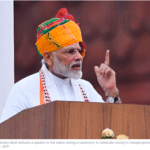In today’s digital age, social media has become an inseparable part of our lives, particularly for children and adolescents. While some argue that social media provides numerous benefits, there is growing concern about its potential harm to kids. As a concerned parent myself, I firmly believe that social media does pose significant risks to our children’s well-being.
One of the most alarming issues associated with social media is its negative impact on mental health. Constant exposure to the carefully curated lives of others can lead to feelings of inadequacy and lower self-esteem. Children, in their formative years, are vulnerable to comparing themselves with their peers online, resulting in anxiety and depression. The relentless pursuit of likes and validation can have detrimental effects on their self-worth, leading to a dangerous cycle of seeking external approval.
Moreover, the addictive nature of social media platforms cannot be overlooked. Endless scrolling and the fear of missing out (FOMO) can easily consume children’s time and energy, affecting their academic performance and social relationships. The constant need for validation through notifications can create an unhealthy dependency on the virtual world, leaving children socially isolated and detached from the real world.
Another pressing concern is cyberbullying, which has become prevalent on social media platforms. Online anonymity empowers bullies to torment their victims without facing any consequences. This can lead to severe emotional distress and, in extreme cases, even push children towards self-harm or suicide. While some platforms have taken measures to combat cyberbullying, it remains an ongoing issue that profoundly affects the mental and emotional well-being of our young generation.
Furthermore, the content children are exposed to on social media is often not age-appropriate. Despite efforts to implement age restrictions, inappropriate material can still find its way onto their screens. This exposure to violence, explicit language, and disturbing imagery can desensitize children and negatively influence their behavior and attitudes.
However, it is essential to recognize that social media isn’t all bad. It can offer educational opportunities, and creative outlets, and connect kids with like-minded individuals worldwide. The key lies in striking a balance between its advantages and disadvantages. Parents must be actively involved in their children’s digital lives, setting boundaries and promoting healthy online habits.
As a society, we must also demand more significant efforts from social media platforms to protect our children. This includes stricter enforcement of age restrictions, robust content moderation, and better mechanisms to address cyberbullying promptly. We can create safer digital environments for our kids by holding these platforms accountable.
While social media has undoubtedly transformed the way we communicate and interact, its potential harm to children cannot be overlooked. As a parent, I firmly believe that we need to be more vigilant about how our children engage with social media and take proactive measures to mitigate its adverse effects. By fostering a healthy relationship with technology and nurturing real-world connections, we can ensure that social media becomes a constructive tool rather than a harmful influence on our children’s lives.














